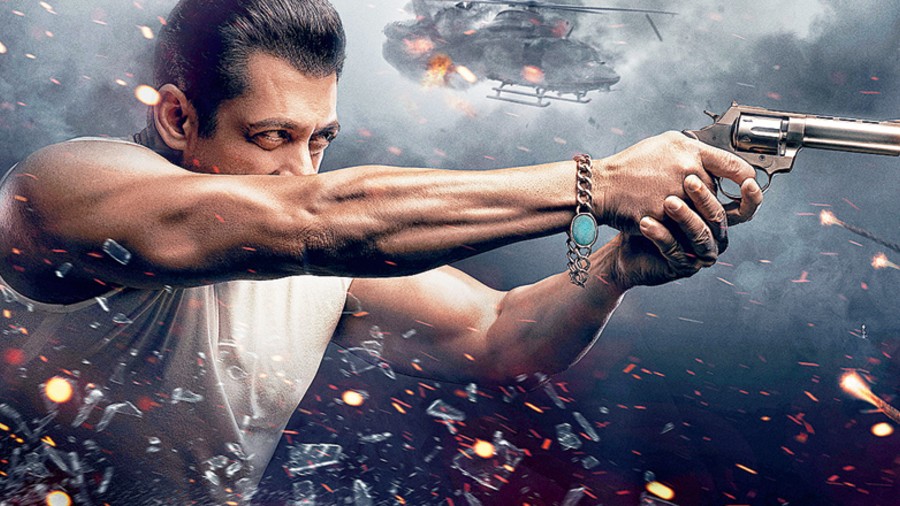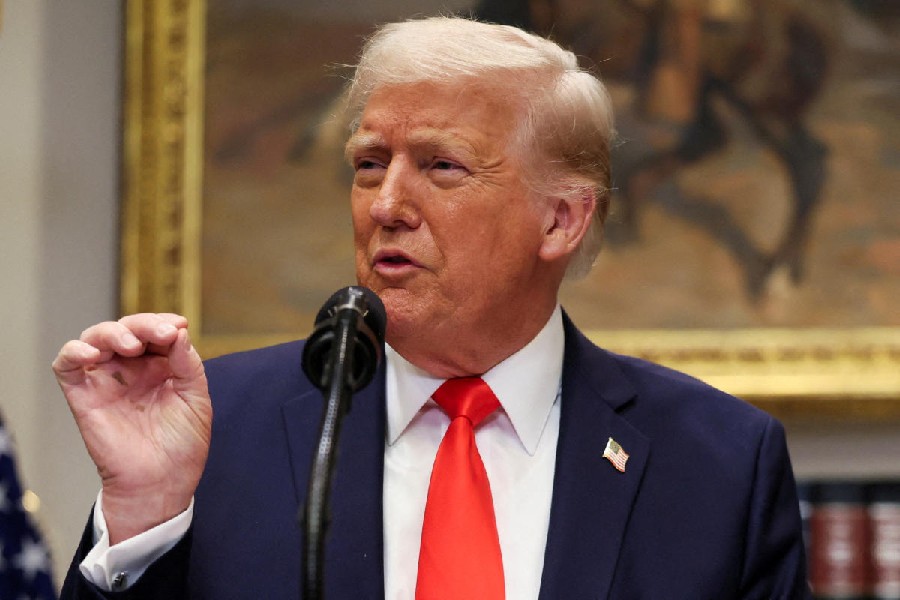I wonder how many people would remember that if all had gone well, it’s Sanjay Leela Bhansali’s Inshallah that would’ve been Salman Khan’s Id release and not Radhe: Your Most Wanted Bhai, the actor’s weakest film in recent times. It’s not about figures alone. Salman made his profit on the table but with declining hopes of a robust return on its investment of Rs 200-plus crore for the rights of Radhe, Zee looks feeble.
Ultimately, it’s all about Salman’s reputation as one of the most bankable stars of Hindi cinema. Irrespective of how many crores he may have personally made, there has been an undeniable erosion of his once sterling Id standing — Tubelight (2017), Race 3 (2018), Bharat (2019), now Radhe. Producer Ramesh Taurani, for instance, may declare that Race 3 fetched more money than the previous editions of the franchise. But did he get greater job satisfaction or believe that Race 3 was the finest in the series? Similarly, can director Ali Abbas Zafar crow about Bharat or applaud the way it shaped up?
Some serious introspection is required when IMDb gives 1.7 to Radhe — the same agency gave Arjun Kapoor’s Sardar Ka Grandson a 4 this week.
To learn where he’s erring, trek back to the cancellation of Inshallah, which had the daisy-fresh pairing of Salman and Alia Bhatt. In 2019, Salman was all set to report for work when Bhansali called off the project — the actor’s “inputs” which had risen exponentially in recent years, had reportedly alarmed the filmmaker. From script and cast to music and edit, Salman had begun to believe that he knew best. But Bhansali was not Remo D’souza nor was Inshallah a Khan family production where Ali Abbas had to capitulate.
It is a fact that Bhansali owed much to Salman who was a star when the unknown director made Khamoshi: The Musical in 1996. Salman had not only stood by him even after it was a box-office failure, he had also encouraged him to make Hum Dil De Chuke Sanam (1999) and, despite a few creases in their friendship, did a guest appearance in Saawariya (2007). The Bhansali of yesteryear may’ve been more receptive to Salman’s inputs than he is today. But it’s equally true the Salman of the 90s was not the crushing know-all he is now.
Also, maturity demands that you respect changing equations. For example, Ekta Kapoor was the TV tsarina when an unknown Smriti Malhotra played Tulsi Virani in her runaway serial Kyunki Saas Bhi Kabhi Bahu Thi (2000). Two decades later, Ekta still rules — the much-applauded Pagglait on Netflix is proof of her power even on OTT. However, today’s Smriti Irani is no longer Tulsi Virani. So, even if the Ekta-Smriti friendship has endured, it would be unwise for anybody to treat a successful politician and central Cabinet minister like the eager young crew member of a TV serial.
Similarly, while Salman is still a major star, Bhansali is no longer his Tulsi Virani. By the time Inshallah took off, Bhansali had Devdas and Black (2005) on his resume, and a hat-trick of blockbusters, Goliyon Ki Raasleela Ram-leela (2013), Bajirao Mastani (2015), Padmaavat (2018). If he wished, Sanjay could have got even Deepika Padukone to do an item song in Inshallah — he didn’t have to listen to Salman Khan, who was pushing Daisy Shah for it.
In the Khan household, it’s believed that turn by turn, his siblings get to co-produce a movie with SKF (Salman Khan Films). Rs 30 crore is earmarked for the sibling on the clear understanding that Salman will call every shot. In other words, there’s nobody around who would dare hold up a mirror to him.
But to up his game again, Salman will have to shake off pliant names like Prabhudeva and Remo D’souza, hire ballsy directors who know their craft and let them do their jobs without disruption. He also needs to realise that people who honestly state that his film isn’t working are not his enemies. It’s those who think it’s expedient to flatter him who are probably inflicting the real damage.
Bharathi S. Pradhan is a senior journalist and author











